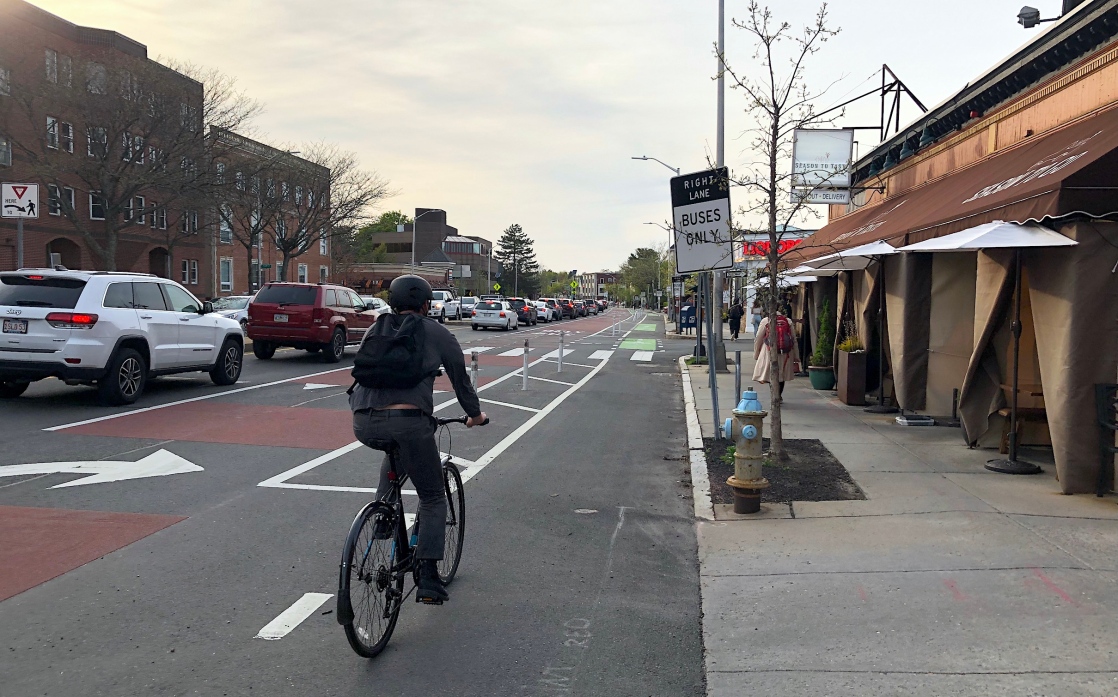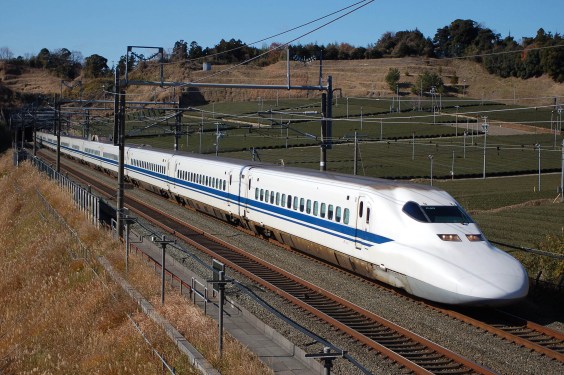- While traffic deaths declined 3.6 percent in 2023, they still topped 40,000 and remain at a historically high level, according to Federal Highway Safety Administration data. (The Truth About Cars; Streetsblog)
- Heavy-duty trucks make up only 5 percent of vehicles, but are responsible for 20 percent of transportation emissions. The Biden administration is proposing the strictest-ever standards on pollution from big rigs. (NPR)
- Fire departments keep fighting traffic safety projects on the grounds that fire trucks can't squeeze through narrow streets, even though far more people die in car wrecks each year than fires. (Thesis Driven)
- Former Texas Observer editor Megan Kimble has written a book, "City Limits: Infrastructure, Inequality and the Future of American Highways," about how federally funded freeways tore through Black neighborhoods in cities like Houston and Dallas, and City Lab has an excerpt.
- Data out of Cambridge, Massachusetts, which was the first U.S. city to require bike lanes as part of road projects, suggests that biking soars when protected bike lanes are installed. (Momentum Mag)
- A $7.5 billion replacement bridge for I-5 between Washington and Oregon will only save the average commuter 30 seconds. (City Observatory)
- Las Vegas received a $150 million federal grant for a 12-mile bus rapid transit line. (Review-Journal)
- A new Metro Atlanta Rapid Transit Authority station near the Atlanta Beltline is a complement to, not a replacement for, transit along the walking and biking loop. (Saporta Report)
- New "community service officers" who enforce fares on Twin Cities rail will now be doing the same on buses. (Minnesota Public Radio)
- Hawaii officials want to revisit road design after speeding drivers killed two cyclists. (Civil Beat)
- St. Louis is making changes to downtown streets to slow down drivers. (First Alert 4)
- San Francisco needs radical change on traffic enforcement and street design to stem the tide of deaths, writes a Standard columnist.
- An Austin city council member is proposing steps to stop drivers from blocking bike lanes. (KXAN)
- A Charlotte group is urging the city to more than double its annual funding for bike lanes, from a paltry $4 million to a slightly less paltry $10 million. (WCNC)
- Providence city council members are lining up in opposition to Mayor Brett Smiley's plans to remove bike lanes. (Journal)
- Phoenix and transit agency Valley Metro are offering fare-free light rail rides during the Final Four. (KTAR)
Today's Headlines
Thursday’s Headlines Are On the Up and Up
Traffic deaths remain alarmingly high at over 40,000 last year despite falling slightly from 2022, according to new FWHA data.

Stay in touch
Sign up for our free newsletter
More from Streetsblog USA
Ambulance Data Reveals That Boston Drivers Are 4 Times More Likely to Run Over Pedestrians From Black Neighborhoods
"Overall, residents of predominantly Black and Latino neighborhoods are about four times more likely than residents of predominantly white neighborhoods to be struck as a pedestrian."
Tuesday’s Sprawling Headlines
Sprawl seems to be having a moment, but it remains a very shortsighted and environmentally disastrous way to solve the housing crisis.
Does Constant Driving Really Make Our Country Richer?
A new study reveals that constant driving is making America less productive and prosperous — and getting people on other modes could help right the ship.
This Threatened Toronto Bike Lane Gets More Rush Hour Traffic Than the Car Lane
Toronto leadership claim "no one bikes" on their cities' paths — but the data shows otherwise.
How to Do High-Speed Rail Right
At the APTA conference in San Francisco, representatives from France, Germany, and Japan revealed the secrets behind their high-speed rail success stories.
‘We’re Not Copenhagen’ Is No Excuse Not to Build a Great Biking And Walking City
A team of researchers identified eight under-the-radar cities leading the local active transportation revolution — and a menu of strategies that other communities can and should steal.





